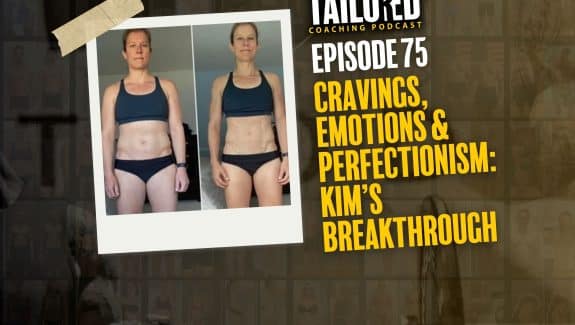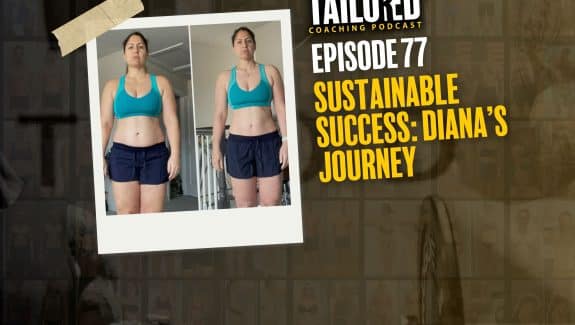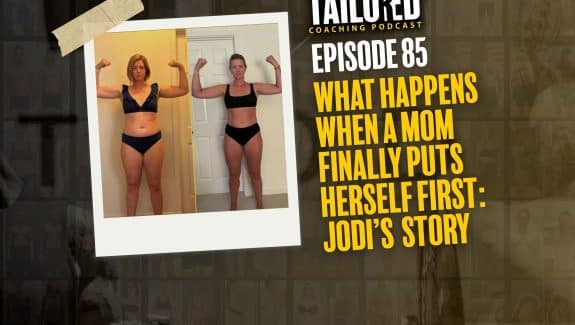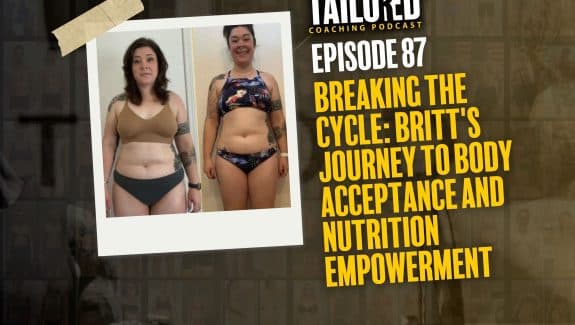Intermittent Fasting is a pretty popular, yet controversial, topic that’s been floating around in the mainstream media and fitness/nutrition world for the past few years.
Bodybuilder bro’s say not to even think about it or you’ll likely dwindle away like a dying flower until all your muscle is stripped off your body. Which sounds pretty extreme… But shit, they’re the one’s with ripped abs and massive biceps.
Then we have the science-based practitioners who are usually PHD’s and Doctors studying diseases and things surrounding obesity, who say it’s one of the most healthy things we can implement into our weekly eating routine. They may not be ripped up, but they do have degrees and studies to back them up.
So which way do we go? Who do we follow? What actually works?
Well the truth, like many things, is that you should likely be in the middle ground and balance things out so you can actually adhere to it.
Because at the end of the day, no matter what anyone says, if you cannot stick to the program or diet for longer than 30 days – it’s irrelevant to life-long results.
We need to lose weight and keep it off. Stay lean, stay healthy, and stay living a better lifestyle. This is not something we want to try out and forget about.
So, the bodybuilder bro’s have some valid points to consider.
Muscle Retention…
If you don’t stay in maintenance calories or at a surplus for at least some of the year, you will find it very hard to maintain and especially build lots of muscle. Intermittent Fasting simply makes that difficult to do.
To build muscle, you need to train HARD and you need to eat enough protein and overall calories. Typically when intermittent fasting, frequently, this can be difficult to accomplish day after day.
This doesn’t mean it’s impossible to do with intermittent fasting… Shit, look at the pioneer of the lean gains protocol Martin Berkhan – the dude’s a beast.
But we do know, is that if you plan to intermittent fast and build muscle – then you need to really consider the macronutrient breakdown of your meals, timing your workout properly, and ensuring that you’re getting enough calories in your feeding window.
There may be more valid facts and points that the bodybuilding community has to NOT intermittent fast and there is plenty of valid reasons for specific athletes to not intermittent fast as well. But that isn’t what I’m trying to achieve or bring out in this article today…
The part I want to really bring out in this article, is that the PHD’s and Doc’s have more than a few valid points to consider.
But before we get into the facts and lay out specific bullets of why Intermittent Fasting can be such a benefit, let’s lay out the 3 approaches or types of Intermittent Fasting to consider implementing.
The Lean Gains Approach
– 16/8 Hour, Fast/Feed, Window.
This is the approach made famous by the ripped man in the picture above. During this protocol of intermittent fasting, you’d simply fast 16 hours a day and eat within an 8-hour window.
Studies and experience has told us that it’s more like a 12-16 hour window, the longer the better as far as health benefits go but even as little as 12 hours a day can show benefits.
The Warrior Diet Approach
– 20/4 Hour, Fast/Feed, Window.
This is an approach made famous by Ori Hofmekler and is another daily approach, just a bit more extreme. During this style of intermittent fasting, you’d extend the 16 hour fast all the way to 20 hours which means your meals during that 4 hour window should be even more dialed in and likely much bigger.
This approach can also be done 2-4x per week, rather than daily and in my own personal experience with my own diet and with clients alike – that’s probably a better route to take when considering adherence and consistency.
The 24-Hour Approach
– 24 Hour Fast.
This is simple, as you can imagine… Don’t eat, for a full day.
And just like explained in both examples of intermittent fasting above, this one sees more benefits due to the longer fasting period. But it physically cannot be done as frequently because… well because you need food to survive.
Many people who practice this style or The Warrior Diet style of intermittent fasting will do what’s called “Alternate Day Fasting”. In other words, every other day they fast 20-24 hours and this has been shown to be VERY beneficial.
Out of all studies and experiments done on intermittent fasting, it’s been said and shown that this seems to have the most benefits and some would even suggest pushing past that 24 hour time period.
That is where approaches like The Monthly Fast come in where you fast for 36+ hours. This is an approach that has been shown to kill bad cells, regenerate newer and stronger cells, reverse insulin resistance, help reverse things like diabetes and MANY other diseases, and much more…
But again we’re not going to cover that today because in my experience and with my audience, it’s less applicable and less often used. So lets stick to the 3 I broke down above and how they can have many, if not all, the same benefits when done properly.
THE BENEFITS OF INTERMITTENT FASTING
Cell Repair
– During a fast, your body will rid of waste materials inside the cells and dead cells themselves while repairing and rebuilding new stronger cells. This is why it can be such a huge benefit to disease prevention and rehabilitation.
Longevity and Disease Prevention
– Gene expression is something that happens where your body experiences changes in genes, cells and molecules directly related to life span and disease prevention.
Insulin Levels
– Fasting can help improve insulin sensitivity, which has been shown to help lose more body fat and/or store less body fat from the food taken in. It’s also linked to many obesity related diseases such as diabetes.
Growth Hormone Boost
–This can help to regulate body composition, body fluids, muscle and bone growth, sugar and fat metabolism, and possibly heart function. All things directly related to more muscle and less fat.
Testosterone
– Fasting has been shown to directly bump levels of testosterone in men due to helping our androgen receptors, which contributes to increasing testosterone.
Lose Weight
– All of the above can already help you lose body fat and drop some pounds… But one of the biggest drivers in intermittent fasting that is leading to weight loss is the fact that it’s easier to adhere to a caloric deficit on a daily basis.
Metabolism Increases
– Due to the bodies natural hormonal boosts, insulin improvement and survival mechanisms, your metabolism can actually bump up and become faster due to intermittent fasting. I must note, that studies show this to occur MUCH more when fasting is longer. So simply fasting 12-16 hours may not have much effect on this, if at all, but may have an effect when done frequently over time.
Stress and Inflammation
– Intermittent fasting was shown to help improve oxidative stress and inflammation in the body. Both things are linked to aging and chronic disease, which means intermittent fasting may help aid in slowing the aging process down and reducing inflammatory markers in the body.
Heart Healthy
– Some studies were done showing that intermittent fasting may actually help improve cholesterol, triglycerides, blood pressure, and inflammatory markers.
Cancer Prevention
– Cancer is a terrible disease that binds to specific cells, fasting has been shown to help in the regeneration of cells which could be a possible aid in preventing or helping manage cancer. (Ketosis has a similar and very possibly better effect. I am obviously not a doctor, but if you or a loved one is experiencing cancer or any other cell binding disease – I highly suggest looking into both of these dietary practices)
Gut Health
– Intermittent fasting has been shown to help aid the GI tract in digestion and also protect your gut bacteria, both due to the anti-inflammatory benefits of fasting.
So as you can see… The doctors may have a few reasons up their sleeves on why almost anyone could benefit from fasting.
Obviously there are always going to be outliers; such as pregnant women, young kids, people with adrenal fatigue, etc… So don’t run out and start fasting without having guidance by a coach or by doing your own research.
But many of you reading this, probably the vast majority of you, should highly consider some form of fasting whether it’s on occasion or it’s frequently.
If you’re reading this because you’re in search of a diet or nutrition plan that will finally allow you to lose weight, continue to enjoy your lifestyle by feeling great while actually having some flexibility in your plan, and most importantly keep the body fat off long-term…
Click Here Now to Apply For a Strategy Call.
During the call, we will map out exactly how Intermittent Fasting, or another proven nutrition and training strategy, will work for you to finally see the results you’re looking for and how my coaching accountability accompanied with that program will keep those results coming for the long run.




























































































































































































































































































































































































































































































